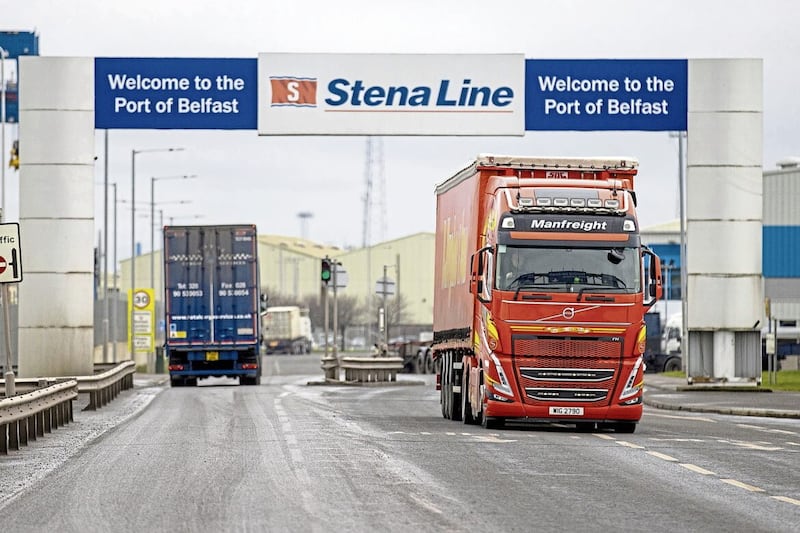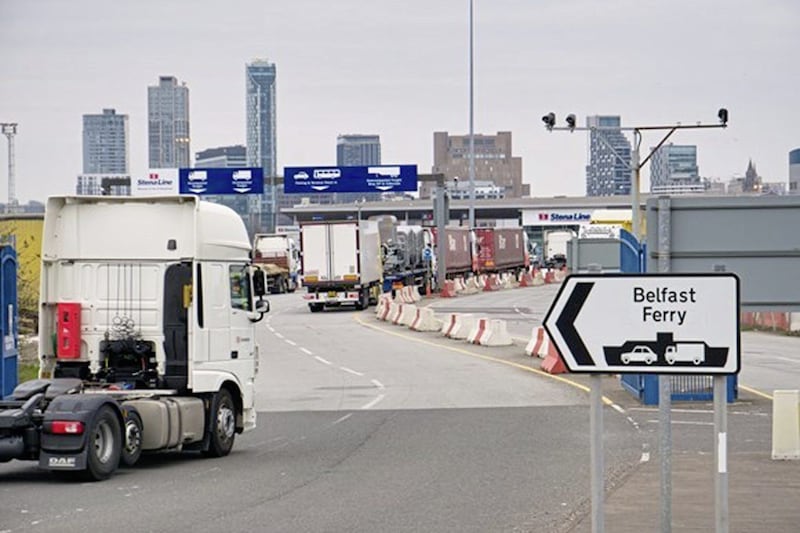CHARTERED accountants in Northern Ireland are seeing 'significant warning signs' for the region's economy and warn that a period of stagnation and poor prospects lie ahead.
The bean-counters also point to a long list of negative influences, including the political impasse at Stormont, the squeeze on living standards, cuts in government spending, and the increased cost of doing business - as well as the continued fall-out of Brexit.
And the 254 respondents to a wide-ranging survey for Chartered Accountants Ulster Society - made up of men and women at the coal-face of what's going on within the regional economy - offered up a dire prediction that the number of businesses in financial distress is increasing (up to 77 per cent from 44 per cent last year).
But on the flip side, they identified the Windsor Framework as the biggest opportunity for Northern Ireland in the years ahead, citing its potential to provide a unique trading position for businesses.
A low cost base, high skills offering, geographic location, English speaking workforce and the ability to potentially lower corporation tax were also cited as plus points for the economy in terms of attracting more inward investment.
And interestingly, while 82 per cent insist the Stormont Executive should be restored, 69 per cent feel more powers should be given to permanent secretaries in the interim.
Chartered Accountants Ulster Society is a district society of Chartered Accountants Ireland, Ireland's largest and oldest professional body of accountants founded in 1888, and it represents more than 5,300 members in the north.
Ulster Society chair Emma Murray, said: “Our members believe it is vital we have leadership taking key decisions, encouraging business investment and better public services. The longer that political instability continues, the more difficult it is for local business to contribute to growth, jobs and a better quality of life in Northern Ireland.”
Independent economist Maureen O’Reilly, who formulated and analysed the survey, said: “The main focus of respondents is on the financial health of the businesses and organisations they represent, so it's concerning that the share of members who believe that financial distress among businesses is on the increase - the highest figure by a considerable margin over the last seven years.
“Businesses are trying to deal with rising costs by absorbing and/or passing them on through increasing prices while at the same time trying to hold on to staff, a difficult balancing act to juggle that can only last for so long if those inflationary pressures persist.
“The current political and economic environment is extremely difficult which unsurprisingly is dampening the mood around prospects for the year ahead. However, members do see opportunities going forward, and the Windsor Framework is certainly viewed as the main catalyst to support the region to move on to a stronger growth path.”
Key findings:
- 23 per cent felt that the economy was growing; 33 per cent say it is stagnant; 43 per cent believe it is contracting.
- 77 per cent say that the number of businesses in financial distress is increasing (2 per cent say it is falling and 16 per cent say it's unchanged).
- 7 per cent feel the outlook for the NI economy in the year ahead is ‘good’ or ‘very good’ while 40 per cent feel the outlook is ‘fair’ and 54 per cent say ‘poor’ or ‘very poor’.
- Rising inflation and squeeze on living standards (96 per cent), cuts in government spending (95 per cent) and current political conditions in Northern Ireland (93 per cent) are seen as the most negative issues for the economy.
- 72 per cent of those surveyed believe that the NI Protocol presents an opportunity for Northern Ireland and 76 per cent believe its challenges can be addressed.
- 85 per cent say their business or organisation is experiencing skills shortages (up from 62 per cent in 2022)
- 82 per cent want the NI Executive to be restored.
- 69 per cent feel that more powers should be given to permanent secretaries within government departments until the Executive is restored.







